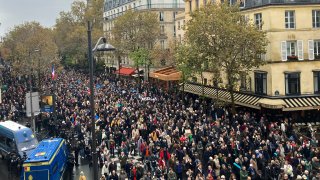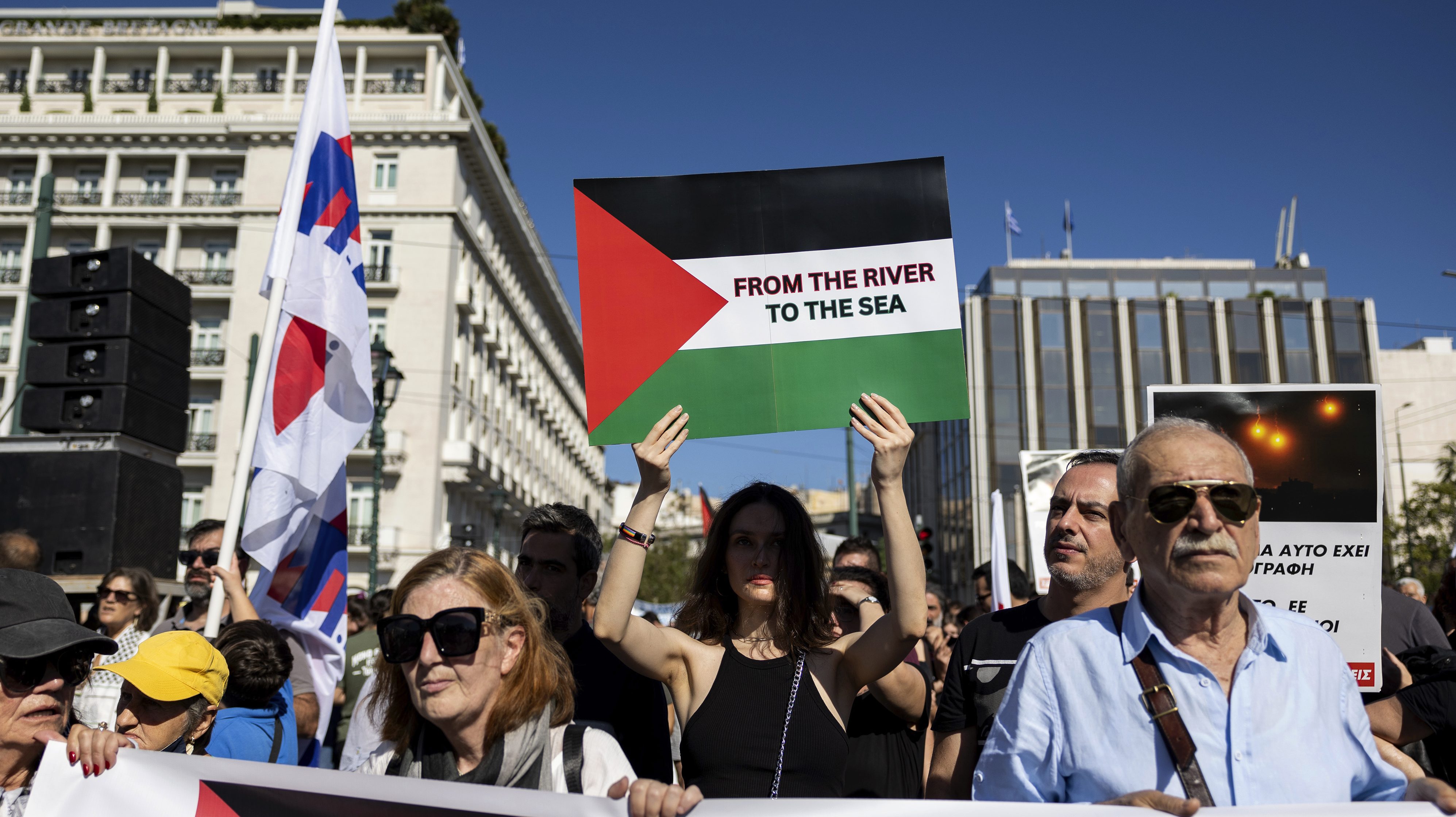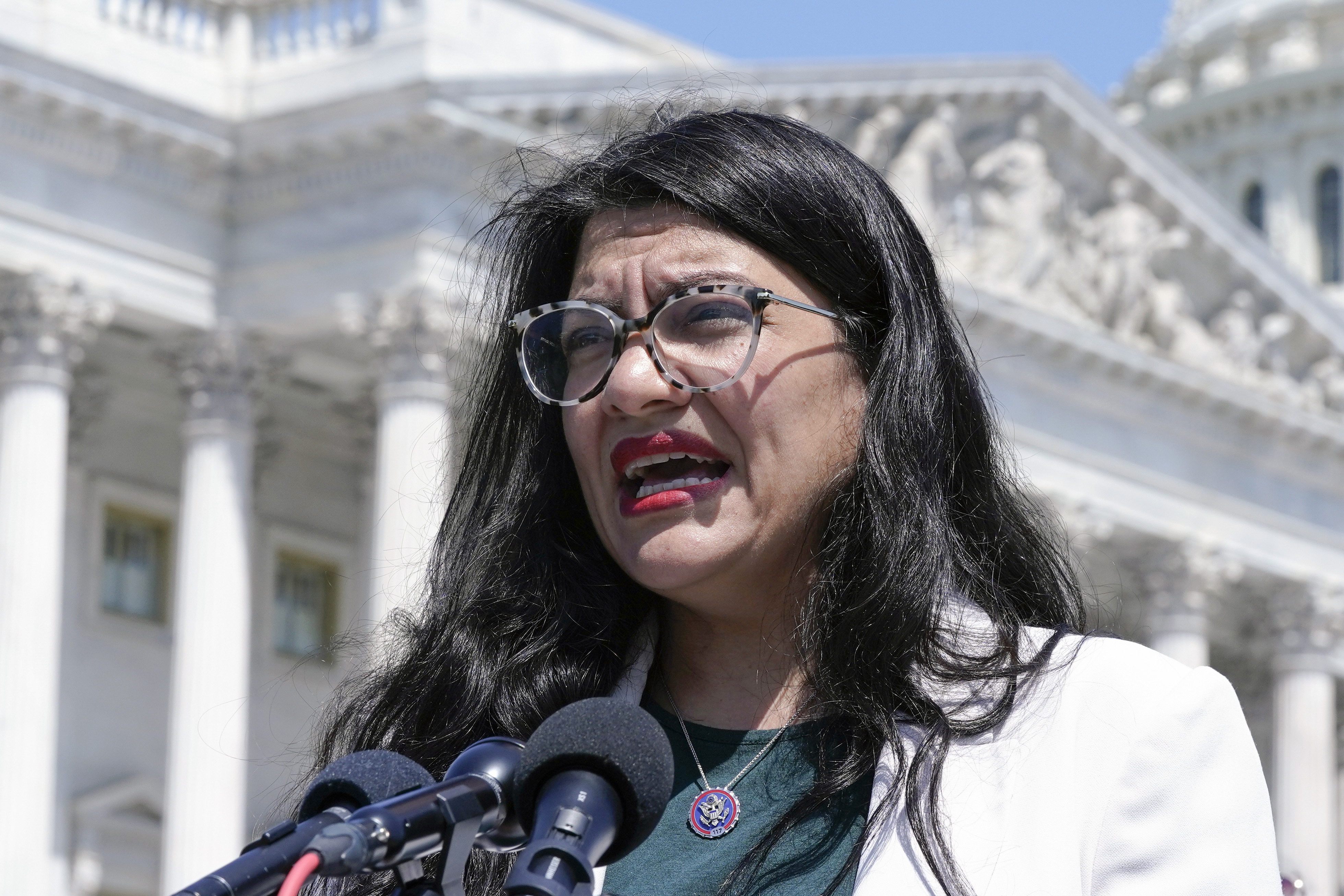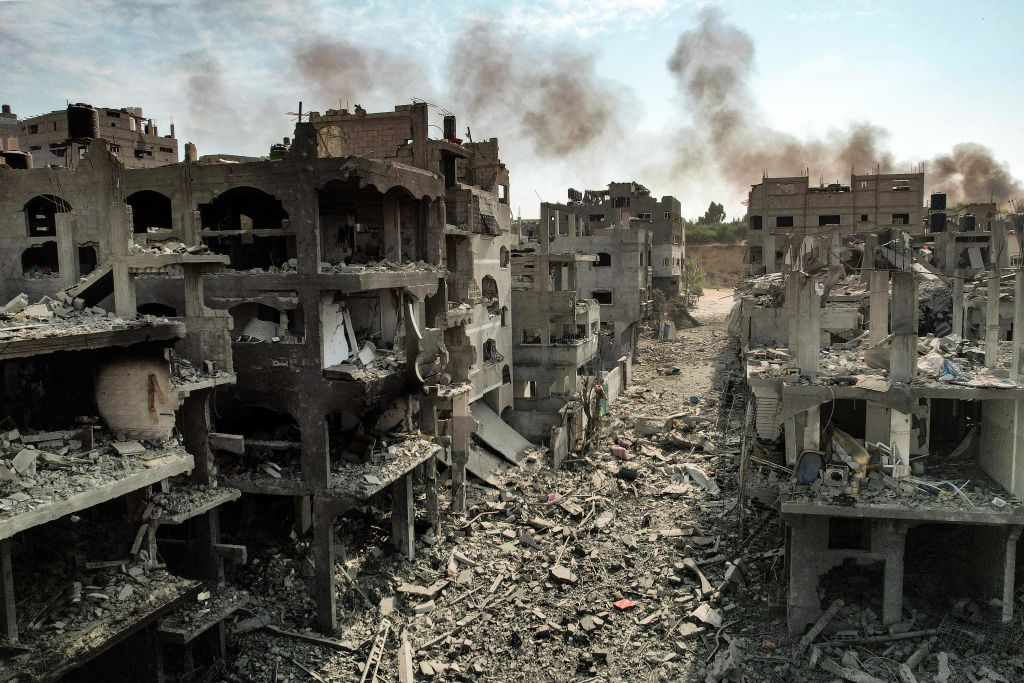
More than 180,000 people across France, including 100,000 in Paris, marched peacefully on Sunday to protest against rising antisemitism in the wake of Israel’s ongoing war against Hamas in Gaza.
Prime Minister Elisabeth Borne, representatives of several parties on the left, conservatives and centrists of President Emmanuel Macron's party as well as far-right leader Marine Le Pen attended Sunday’s march in the French capital amid tight security. Macron did not attend, but expressed his support for the protest and called on citizens to rise up against “the unbearable resurgence of unbridled antisemitism.”
However, the leader of the far-left France Unbowed party, Jean-Luc Melenchon, stayed away from the march, saying last week on X, formerly Twitter, that the march would be a meeting of “friends of unconditional support for the massacre” in Gaza.
The interior ministry said at least 182,000 people marched in several in French cities in response to the call launched by the leaders of the parliament's upper and lower houses. No major incident has been reported, it said.
Paris authorities deployed 3,000 police troops along the route of the protest called by the leaders of the Senate and parliament’s lower house, the National Assembly, amid an alarming increase in anti-Jewish acts in France since the start of Israel’s war against Hamas after its Oct. 7 surprise attack on Israel.
US & world news
Get Tri-state area news delivered to your inbox.> Sign up for NBC New York's News Headlines newsletter.
France has the largest Jewish population in Europe, but given its own World War II collaboration with the Nazis, antisemitic acts today open old scars.
Holding a French flag, Robert Fiel said marching against antisemitism is “more than a duty.”
“It's a march against violence, against antisemitism, against all (political extremes) that are infiltrating the society, to show that the silent majority does exist,” the 67-year-old said.
Family members of some of the 40 French citizens killed in the initial Hamas attack, and of those missing or held hostage, also took part in the march, which Paris police said drew 105,000 participants.
Patrick Klugman, a lawyer and a member of “Freethem” committee working to obtain the release of people held by Hamas and other groups in Gaza, said the large participation in the march is meaningful and symbolic in reassuring Jewish communities in France.
“I am very proud of my country because of this mobilization,” Klugman said. “I feel less alone than in the past weeks and days.”
Yonathan Arfi, the president of the Representative Council of Jewish Institutions in France known as CRIF said he was encouraged Sunday's show of support, but the question remains, he told French broadcaster BFM at the march, “what will be done (against antisemitism) tomorrow?”
Tomer Sisley, an Israeli and French actor insisted the massive show of solidarity proves that majority of French citizens are against violence and hate against any religious and ethnic group.
“We’re not Jews, we’re not Muslims, we’re not Christians,” Sisley said. "We are French and we are here to show that we are all together.”
French authorities have registered more than 1,000 acts against Jews around the country in the month since the conflict in the Middle East began.
Former French president Francois Hollande said “there are many French flags in the protest but what unites us is not just a flag, it’s what it represents, it’s the value of freedom and the value of human dignity."
In a letter addressed to the French on Sunday, Macron vowed that perpetrators will be prosecuted and punished.
“A France where our Jewish fellow citizens are afraid is not France,” Macron said in the letter, published in Le Parisien newspaper. He called on the country to remain “united behind its values ... and work for peace and security for all in the Middle East.”
Macron said he will attend “in my heart and in spirit,” but not in person. “My role is to build unity of the country and to be firm on values,” Macron said Saturday on the sidelines of Armistice Day commemorations to mark the end of World War I.
French far-right leader Marine Le Pen attended Sunday's march amid fierce criticism that her once-pariah National Rally party has failed to shake off its antisemitic heritage despite growing political legitimacy.
Also in the news
After arriving to the march with the president of the party, Jordan Bardella, Le Pen dismissed critics and said that she and the party members are “exactly where we need to be.” She called on other politicians “to take a break from fomenting political controversies” during the march.
Le Pen and other far-right officials showed up at the end of the march, hundreds of meters away from government members and other officials who led the demonstration.
Borne, who is the daughter of a Jewish Holocaust survivor, tweeted “the presence of the National Rally is not fooling anyone.”
The president of the Paris region council, Valérie Pécresse, a former conservative presidential candidate, denounced “hypocrisy,” saying that National Rally officials ran against her in past elections “who were clearly antisemitic people and Marine Le Pen never sanctioned them.”
As of Saturday, officials counted 1,247 antisemitic acts since Oct. 7, nearly three times as many as in the whole of 2022, according to the Interior Ministry.
Sunday's march in Paris appears as the biggest gathering to denounce antisemitism in France since a 1990 demonstration against the desecration of a Jewish cemetery.
France has banned a number of pro-Palestinian demonstrations, although supporters have marched in several French cities in the past weeks, including thousands demanding a cease-fire in Gaza in a protest in Paris last Sunday.
————
Surk contributed from Nice, France. Video journalist Nicholas Garriga in Paris contributed reporting.







